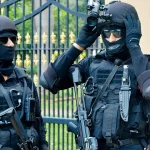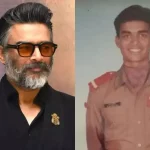In the journey of preparing for the Services Selection Board (SSB) interview, candidates can often find themselves re-evaluating their strategies, especially if they do not achieve success on their first attempt. The SSB interview process is not just about assessing knowledge but also evaluating personal qualities such as leadership potential, teamwork, resilience, and self-awareness. For repeaters, the landscape can be challenging yet rewarding, provided the right preparation and mindset are adopted.
This article delves into ten common SSB interview questions that candidates face during their repeat attempts, accompanied by suggested answers and insights. A reflective approach to these typical queries can empower candidates to enhance their performance and ultimately secure a recommendation from the SSB.
Understanding the SSB Interview Process
The SSB interview is an integral part of the selection process for aspirants seeking to join the Defence Forces of India. This assessment is designed to gauge not only the candidates’ intellectual abilities but also their personality traits, adaptability, and commitment to service. Those who repeat the interview often face an added burden of expectation and pressure, making the preparation even more critical.
During the interview, candidates must navigate personal questions stemming from their past experiences—particularly insights from prior attempts. There’s a clear emphasis on understanding the “why” behind previous failures and the proactive steps taken to improve.
Common SSB Interview Questions for Repeaters
1. Why Were You Not Recommended in Your Previous Attempt?
Purpose: This question serves to assess your self-awareness and honesty regarding your past performance.
Sample Answer: “I prepared well and worked hard but made errors such as poor communication during group discussions and struggled to answer some personal interview questions satisfactorily. These mistakes likely contributed to my previous rejection.”
Insight: Candidates should approach this question with realism. Acknowledging past shortcomings while demonstrating a willingness to learn showcases personal growth and maturity.
2. What Special Preparation Have You Done This Time to Clear SSB?
Purpose: The interviewer aims to evaluate your efforts to improve since your last attempt.
Sample Answer: “This time, I enhanced my communication skills by engaging in debates and public speaking activities. I also kept myself updated with current affairs and followed a disciplined fitness routine to meet the physical standards for selection.”
Insight: Highlighting holistic development—including emotional, intellectual, and physical aspects—communicates a comprehensive effort to overcome past weaknesses.
3. What Did You Perform Best During Your Previous SSB?
Purpose: This inquiry seeks to identify your strengths, despite previous rejection.
Sample Answer: “I excelled during group tasks where I collaborated effectively with peers. I contributed solutions and exhibited leadership qualities when necessary.”
Insight: Reflecting on strengths even in the face of failure can demonstrate confidence, resilience, and an understanding of your capabilities.
4. What May Be the Reason for Your Failure in the Last SSB?
Purpose: The purpose here is to promote deeper self-analysis.
Sample Answer: “I found it challenging to project myself accurately during the interviews and could not articulate my thoughts satisfactorily during the personal interview, limiting my potential.”
Insight: Displaying a reflective mindset while maintaining a focus on self-improvement, without blaming external factors, is crucial.
5. What If I Do Not Recommend You This Time Also?
Purpose: This question evaluates your resilience in the face of potential failure.
Sample Answer: “That would be disheartening, but I am committed to analyzing my performance, learning from it, and improving further for future attempts.”
Insight: Demonstrating a positive outlook toward setbacks shows persistence and a growth mindset, vital traits for any candidate.
6. What Are Your Weaknesses and What Steps Have You Taken to Overcome Them?
Purpose: Through this question, the interviewer assesses self-awareness and plans for improvement.
Sample Answer: “One of my weaknesses has been managing time effectively under pressure. I addressed this by practicing time-bound tasks, taking mock tests, and engaging in mindfulness exercises to improve my decision-making capability.”
Insight: Honesty about weaknesses coupled with concrete steps taken to overcome them exhibits maturity and readiness for growth.
7. Why Do You Want to Join the Armed Forces?
Purpose: This inquiry gauges your motivation and commitment to serving in the armed forces.
Suggested Approach: Convey emotions rooted in patriotism, the desire to serve the nation, and a passion for leadership and discipline.
8. What Special Qualities Do You Have That Will Make You a Good Officer?
Purpose: This question evaluates your self-confidence and how well you align with the expected qualities of an officer.
Suggested Answer: Emphasize traits such as leadership, teamwork, integrity, resilience, decisiveness, and a commitment to service.
9. What Is Your Career Plan If You Get Rejected This Time Too?
Purpose: Understanding your long-term vision and attitude toward setbacks is crucial.
Sample Answer: “I intend to continue improving myself, potentially pursuing related courses or roles that cultivate relevant skills, while remaining committed to my goal of serving in the armed forces.”
Insight: Envisioning a path beyond immediate setbacks can highlight strategic thinking and perseverance.
10. Why Should I Recommend You This Time?
Purpose: This question prompts candidates to justify their candidacy convincingly.
Suggested Answer: “I believe I should be recommended because I have sincerely learned from my mistakes, actively addressed my weaknesses through tangible actions, and demonstrated a commitment to bettering myself and serving with the qualities expected from an officer.”
Additional Insights and Guidance
Key Characteristics Sought by Interviewing Officers
In preparation for the SSB interviews, one must understand that interviewers look for authenticity, consistency in responses when compared with previous forms, confidence, humility, and traits that align with those of effective leaders. This includes, but is not limited to:
- Leadership Potential: Ability to inspire and manage teams effectively.
- Teamwork: Collaborating with peers harmoniously to achieve common objectives.
- Resilience: Demonstrating the ability to bounce back from failures and adjust strategies.
Avoiding Scripted Answers: Candidates should refrain from memorizing answers verbatim. Authentic, personal, and reflective responses resonate better with interviewers.
Focus Areas for Repeaters
It is essential for repeaters to allocate time to focus on the following key areas:
- Physical Fitness: Maintaining or improving physical health to meet fitness standards.
- General Awareness: Staying updated with current affairs and national policies.
- Communication Skills: Engaging in conversations, participating in workshops, and practicing public speaking.
- Psychological Preparedness: Preparing for the mental challenges of the interview process, developing coping mechanisms for stress.
Mock interviews play an invaluable role in preparing candidates for the real experience. Practicing with peers or mentors helps in smoothing out presentation skills and boosting confidence.
Challenges and Solutions for Repeat Candidates
Common Challenges:
- Overcoming Failures: Past failures can haunt candidates, leading to anxiety and self-doubt.
- Managing Expectations: Those attempting again may bear higher expectations from themselves and their families, which can lead to added pressure.
- Identifying True Weaknesses: It can be hard for repeaters to pinpoint weaknesses that need addressing after their first attempt.
Proposed Solutions:
- Reflective Journaling: Keeping a journal can help candidates articulate their feelings, recognize patterns, and document improvements.
- Peer Support Groups: Joining groups of similarly motivated individuals can foster a sense of community, provide constructive feedback, and build morale.
- Counseling and Professional Guidance: Engaging with mentors or career coaches can give candidates new perspectives on challenges and strategies for overcoming them.
Future Trends and Preparing for the SSB Interview
As the Armed Forces evolve, so does the assessment process for aspiring officers. The SSB interviews are shifting towards a more holistic view of candidates, emphasizing emotional intelligence, adaptability, and cultural awareness. Therefore, aspirants should prepare for future trends such as:
- Increased Use of Technology: Use of virtual reality for training simulations to test candidates’ response as they will be assessed on real-life scenarios.
- Emphasis on Soft Skills: The importance of soft skills such as empathy, communication, and active listening is predicted to gain more prominence.
Candidates should keep abreast of these trends and continuously adapt their preparation strategies.
Conclusion
The SSB interview serves as a decisive step for aspiring candidates aiming to enter the Defence Forces. For repeaters, the experience can be both a learning opportunity and a chance to refine their approach based on past insights. By preparing thoughtful answers to common questions, showcasing personal growth, and maintaining a resilient attitude, candidates can turn previous failures into strengths. Remember, each attempt is a stepping stone toward success; it’s not just about the destination, but also the journey of self-discovery and improvement.
Engagement and preparation go hand in hand. Each practiced answer can greatly enhance your confidence levels. As a call to action, candidates must not shy away from introspection, embrace their journeys, and wholeheartedly commit to their dreams of serving the nation. To further bolster your preparation, consider utilizing resources from SSBCrack and SSBCrackExams, including books, online courses, and eBooks designed to maximize your chances of success in the SSB interviews.
Ultimately, the SSB interview is a testament to your tenacity, character, and determination to serve your nation—a noble pursuit that merits all your efforts.












